calsfoundation@cals.org
Ellis CeDell Davis (1926–2017)
Ellis CeDell Davis was a blues musician and recording artist who helped bring blues from its rural Southern roots into the twenty-first century. He employed a unique slide guitar style and performed the traditional Delta blues he learned growing up in and around Helena (Phillips County). Although he was a longtime professional musician, recordings of his music were not available until 1983. In the late twentieth century, he recorded several albums and became a favorite with a new generation of blues fans.
CeDell Davis was born on June 9, 1926, in Helena, where his mother worked as a cook but was also known as a faith healer. At age four, Davis went to live with relatives on the E. M. Hood Plantation near Tunica, Mississippi. There, he befriended Isaiah Ross, who went on to blues fame as “Doctor Ross.” The youngsters learned music together, and by age seven, Davis had learned harmonica and rudimentary guitar skills he honed on an improvised one-string instrument called a diddley bow.
Davis returned to Helena in the mid-1930s. He contracted polio at age nine and was left partially paralyzed. After nearly two years in a Little Rock (Pulaski County) hospital, Davis could walk only with crutches and had limited use of his arms and hands. He had to relearn guitar, and this greatly shaped his unusual style and sound. Although right handed, Davis played with his left hand dominant, in nonstandard tunings, fretting the strings with a table knife used as a slide. The resulting sound became Davis’s trademark, though it can seem out of tune to some listeners.
At fourteen, Davis began making a living performing at juke joints and on street corners in Helena. The older bluesmen in the area influenced him. In the 1940s, Helena was home to Robert Lockwood Jr., Sonny Boy Williamson, Roosevelt Sykes, and a host of blues greats. Davis worked with many of the local artists, most notably slide guitar great Robert Nighthawk.
After a brief stay in St. Louis, Missouri, in 1945, Davis returned to Helena and the Delta. He continued to play locally and was an occasional guest on King Biscuit Time and other programs on Helena’s KFFA radio. In 1953, Davis began a ten-year stint with Nighthawk.
Davis followed Nighthawk to St. Louis in 1957, joining a network of Arkansas natives working there, including Williamson, Sykes, and Frank Frost. Soon after moving to St. Louis, Davis was involved in a serious accident. While he performed at a nightclub with Nighthawk and drummer Sam Carr, a fight broke out. Panicked patrons trampled Davis, who suffered severe injuries. He stayed in a hospital for months and was wheelchair bound afterward. Davis stayed in St. Louis four more years, continuing to work with Nighthawk, Carr, and Frost.
He returned to Arkansas in 1961, settling in Pine Bluff (Jefferson County). In a 2000 interview, Davis said he had been married several times and had three children and several stepchildren.
Despite a lengthy and accomplished career, Davis did not record until the late 1970s, when folklorists included his music on the compilation album Keep It to Yourself: Arkansas Blues, Volume I, released by Rooster Records in 1983 (and rereleased in 2006 by Stackhouse Records with the help of Helena-West Helena’s Delta Cultural Center). His reputation was enhanced by prominent mention in musician and critic Robert Palmer’s widely read Deep Blues, originally published in 1981. Davis and Palmer became friends and playing partners. Palmer produced Davis’s 1993 solo debut, Feel Like Doin’ Something Wrong. Davis then became active in recording studios, releasing the albums The Horror of it All, CeDell Davis, and a greatest-hits collection over the next few years, all on Fat Possum, a record company based in Oxford, Mississippi.
His belated recording debut and subsequent follow-ups made Davis a regular on the blues festival circuit. He toured the United States and performed or recorded with an eclectic array of musicians, including jazz great Ornette Coleman, Bruce Hampton, and Palmer. He remained active in music until the end of his life; members of rock bands R.E.M. and Screaming Trees appeared on his 2002 release, Lightning Struck the Pine.
In 2001, Davis’s “She Got the Devil in Her” was covered by Buddy Guy on his Sweet Tea album. In 2004, he received a Lifetime Achievement Award for Blues from the Delta Cultural Center, which also features Davis memorabilia. Davis performed in Little Rock in October 2012 with several noted musicians, including Barrett Martin (formerly of Screaming Trees) and Peter Buck (formerly of R.E.M.). While he did not play the guitar, as a stroke had left him without the use of his right arm, he sang from his wheelchair. He also performed in Little Rock in 2016.
Davis’s final album was Even the Devil Gets the Blues, released in 2016. He died on September 27, 2017.
For additional information:
Bogdanov, Vladimir, Chris Woodstra, and Stephen Thomas Erlewine, eds. All Music Guide to the Blues: The Definitive Guide to the Blues. San Francisco: Backbeat Books, 2003.
Cochran, Robert. Our Own Sweet Sounds: A Celebration of Popular Music in Arkansas. 2nd ed. Fayetteville: University of Arkansas Press, 2005.
Palmer, Robert. Deep Blues. New York: Viking Press, 1981.
Pareles, Jon. “CeDell Davis, Bluesman Who Played Guitar With a Knife, Dies at 91.” New York Times, October 1, 2017. https://www.nytimes.com/2017/10/01/obituaries/cedell-davis-bluesman-dies.html (accessed August 10, 2023).
Pearson, Barry Lee. “CeDell Davis’ Story and the Arkansas Delta Blues.” Arkansas Review: A Journal of Delta Studies 33 (April 2002): 3–14.
Ramsey, David. “Still around Here.” Oxford American 95 (Winter 2016). Online at http://www.oxfordamerican.org/magazine/item/1087-still-around-here (accessed August 10, 2023).
Terry Buckalew
Delta Cultural Center
 Arts, Culture, and Entertainment
Arts, Culture, and Entertainment Music and Musicians
Music and Musicians World War II through the Faubus Era, 1941 through 1967
World War II through the Faubus Era, 1941 through 1967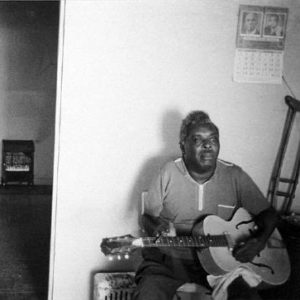 CeDell Davis
CeDell Davis 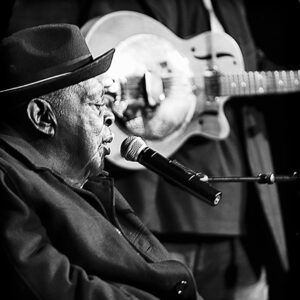 CeDell Davis
CeDell Davis 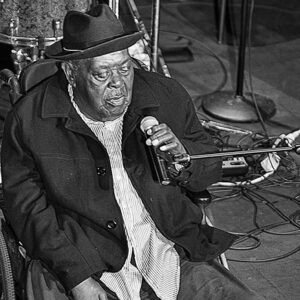 CeDell Davis
CeDell Davis 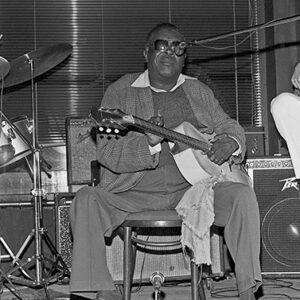 CeDell Davis
CeDell Davis 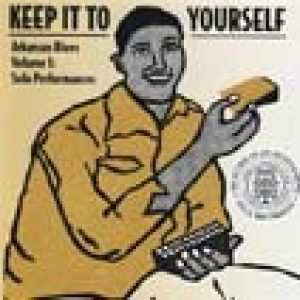 "Lonely Nights," Performed by CeDell Davis
"Lonely Nights," Performed by CeDell Davis 




Comments
No comments on this entry yet.